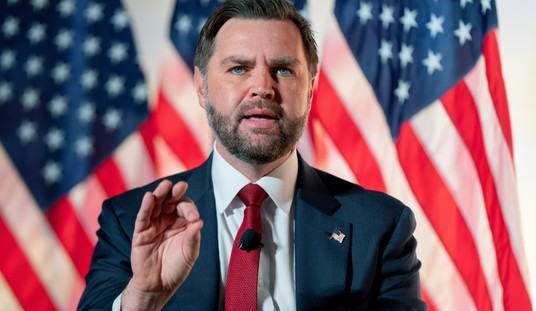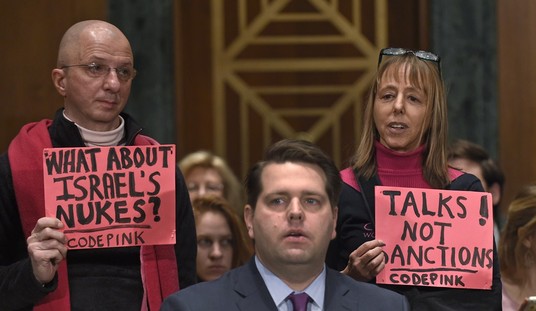Mitt Romney tells CBS News chief political correspondent Jan Crawford, that he accepts the Supreme Court’s decision that President Obama’s individual mandate is “a tax.”
In the Crawford interview Romney said there is no way around the Court’s decision:
“I said that I agreed with the dissent, and the dissent made it very clear that they felt it was unconstitutional. But the dissent lost – it’s in the minority.
And so now the Supreme Court has spoken, and while I agreed with the dissent, that’s taken over by the fact that the majority of the court said it’s a tax, and therefore it is a tax. They have spoken. There’s no way around that.
You can try and say you wish [the court] had decided a different way, but they didn’t. They concluded it was a tax; that’s what it is. And the American people know that President Obama has broken the pledge he made. He said he wouldn’t raise taxes on middle-income Americans, and not only did he raise the $500 billion that was already in the bill, it’s now clear that his mandate, as described by the Supreme Court, is a tax.”
The media and many pundits have really messed up this story. They have presented the voters with a false story that The Romney Campaign and the GOP are at odds over the tax versus unconstitutional commerce clause-based mandate. The real issue is that the Supreme Court left Obama with a choice: his ObamaCare federal individual mandate is either a constitutional tax or an unconstitutional penalty.
Governor Romney thought it was an unconstitutional penalty, but accepts the Court’s decision. Team Obama has been pressing hard trying to convince voters that, notwithstanding what the Supreme Court said, the ObamaTax is not a tax, but just a penalty:
- Stephanie Cutter, Deputy Obama Campaign Manager: “What John Roberts said, we have the power to impose this penalty on people through the taxation clause, it’s a penalty.”
- David Axelrod, Sr. Obama Campaign Strategist: “Whether you call it a mandate or a tax, what it is is a penalty of the sort I described before.”
- Obama surrogate, Gov. Deval Patrick (D-MA): “Don’t believe the hype that the other side is selling. This is a penalty.”
- The so-called Obama Truth Team: “…and the ‘tax’ they are trying to scare everyone about is actually a penalty for the 1% of people who can afford insurance but still choose not to buy it.”
- During the June 30, 2012 press gaggle, Obama’s White House spokesman Jay Carney said: “It’s a penalty because you have a choice. You don’t have a choice to pay your taxes, right?
- On Fox News Sunday, White House Chief of Staff Jacob Lew struggled for over five minutes trying to explain why it isn’t a tax.
- On CBS’s Face the Nation, Obama surrogate Gov. Martin O’Malley (D-MD), wasn’t able to explain why it is not a tax.
Obama should not be allowed, as he has on so many other issues, to get away with having it both ways here. Obama’s federal individual mandate is either a constitutional tax or an unconstitutional penalty.
Obama’s campaign is obfuscating and claiming it is not a tax despite the Court’s ObamaTax ruling in a desperate attempt to argue the ObamaTax does not prove Obama lied his way into office with his promise he would not raise taxes on Americans making less than $250,000:
“I can make a firm pledge. Under my plan, no family making less than $250,000 a year will see any form of tax increase. Not your income tax, not your payroll tax, not your capital gains taxes, not any of your taxes.” (Presidential candidate Obama speaking in Dover, New Hampshire, Sept. 12, 2008 [video link].)
You can watch video of Obama making his firm pledge here.
I could, perhaps should, stop there, but we need to mention the “it’s not a tax” meme ignited by Romney senior adviser Eric Fehrnstrom on MSNBC’s “Daily Rundown.”:
“FEHRNSTROM: The Governor disagreed with the ruling of the court. He agreed with the dissent that was written by Justice Scalia, which very clearly stated that the mandate was not a tax.
CHUCK TODD: The governor does not believe the mandate is a tax — that’s what you’re saying?
FEHRNSTROM: The governor believes that what we put in place in Massachusetts was a penalty and he disagrees with the Court’s ruling that the mandate was a tax, but again —
TODD: But he agrees with the president that it is not — and he believes that you shouldn’t call the tax penalty a tax, you should call it a penalty or a fee or a fine?
FEHRNSTROM: That’s correct. But the president also needs to be held accountable for his hypocritical and contradictory statements because he has described it variously as a penalty and as a tax, he needs to reconcile those two very different statements.”
The best explanation I’ve seen for Fehrnstrom’s “shouldn’t call the tax penalty a tax” comment is from CNN. According to CNN, this wasn’t another “Etch-A-Sketch” moment. Rather, it was a shrewd move to assuage worried moderates and independents and draw fire away from Romney:
“It’s still kind of ham-handed, but it served a strategic purpose,” said Trevor Parry-Giles, a political communication professor at the University of Maryland. “What (Romney) has to confront is that he did the exact same thing in Massachusetts. And that he’s not as hard-nosed and doctrinaire as he sounds. He’s trapped in this weird realm where he has to appeal to the base but still attract the center.”
In other words, Fehrnstrom took one for Romney. Health care is a particularly thorny issue. Obama wants you to believe that the tax penalty in the ObamaCare law was modeled after the reform plan passed in Massachusetts under then governor Mitt Romney.
Obama can make that point but it would only be fair to note what Romney has been saying about his Massachusetts healthcare mandates. Romney has repeatedly said that his plan was a state-based plan but one he does not think would work on a federal level. Romney has said far more than just that it was “meant for Massachusetts only.” He has in fact based his position on the 10th Amendment, as he explained during the December 11, 2011 ABC News Iowa Republican debate in an exchange with Gov. Perry and former Speaker Gingrich:
MITT ROMNEY: A good deal of what you said was right. Some was wrong. Speaker Gingrich said that he was for a federal individual mandate. That’s something I’ve always opposed. What we did in our state was designed by the people in our state for the needs of our state. You believe in the 10th Amendment. I believe in the 10th Amendment. The people of Massachusetts favor our plan three to one. They don’t like it, they can get rid of it. (COUGH) That’s the great thing about (COUGH) a democracy, where individuals under the 10th Amendment have the power to craft their own solutions.
By the way, the– the problem with President Obama’s plan is it does three things we didn’t in my opinion, among others. I understand we disagree on this. But among others, one, it raises taxes by $500 billion. We (NOISE) didn’t raise taxes. Two, it cuts Medicare by $500 billion. We didn’t do that, either. And three, it doesn’t just deal with the people that don’t have insurance. It’s a 2,000-page bill that takes over health care for all the American people. It is wrong for health care. It’s wrong for the American people. It’s unconstitutional. And I’m absolutely adamantly opposed to ObamaCare.
And if I’m the President of the United States, I will return to the people and the states the power they have under the constitution and they can craft the solutions they think are best for them…
Romney stands firm on the idea of 10th Amendment as allowing a laboratory in which the states to come up with and their own solutions. Romney tried to solve the Massachusetts healthcare problem. But those solutions he does not want the federal government to try it on a national scale.
In longer interview excerpts released by the Romney campaign, Romney again differentiates between a state mandate and a federal mandate when it comes to taxation.
CRAWFORD: “But does that mean that the mandate in the state of Massachusetts under your health care law also is a tax? I mean, you raised taxes as governor.”
ROMNEY: “Actually, the chief justice in his opinion made it very clear that at the state level, states have the power to put in place mandates. They don’t need to require them to be called taxes in order for them to be constitutional. And as a result, Massachusetts’ mandate was a mandate, was a penalty, was described that way by the Legislature and by me, and so it stays as it was.”
CRAWFORD: “So at the state level because of … you’re saying the Supreme Court says that’s different, that the federal government — the powers are different between the states and the federal government? Does that make sense to you?”
ROMNEY: “Just take a read of the opinion. The chief justice said that states have what’s known as police power, and states can implement penalties and mandates and so forth under their constitutions, which is what Massachusetts did. But the federal government does not have those powers, and therefore for the Supreme Court to reach the conclusion it did — that the law was constitutional — they had to find it was a tax, and they did. And therefore Obamacare’s a tax. Like it or not, it’s a tax.”
So there we have it. Romney accepts that the Supreme Court has determined that ObamaCare is actually ObamaTax. Obama cannot bring himself to do so.










Join the conversation as a VIP Member